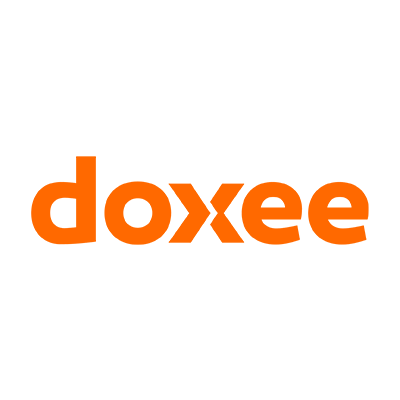The increasing digitization of the hotel industry is changing the concept of tourism marketing. The hotel chain Club Family Hotel is embracing these changes and, with Doxee Pvideo®, is choosing personalized video to communicate with potential customers in an interactive and one-to-one approach.
The world of travel and leisure is a market in continuous growth. The current market value of €450 billion (based on 2017 estimates) is expected to increase over the next 10 years, reaching about €532 billion in 2027 (ninjamarketing.it).
During that time, the sector will continue to manage the challenges as a result of technology transformations and of constantly changing consumer habits.
How do travellers choose a hotel?
As evidenced by research from Cornell University School of Hotel Administration, most people rely on the advice of friends and family and employ search engines (especially Google, Yahoo and Bing), travel websites, and metasearch sites (like Expedia) to help narrow their search.
When word of mouth is not enough, 93% of Italian travellers rely on digital sources like TripAdvisor to choose their hotels and discover new destinations.
Social media also plays an important role in the selection process. Potential customers can interact directly with the hotel (and learn from other customer experiences) via Facebook, Twitter, and YouTube before booking their stay. This connection greatly affects their choices.
According to the numbers provided by the Mentefredda blog, 41% of travellers choose a hotel based on a positive digital experience—a fact that should not be underestimated for anyone in the hospitality industry.
The concept of tourism marketing for hotels
So, what is the best way to attract the attention of digital travellers?
Social media, email marketing, and customer service chat capabilities are some of the first tools to use. However, they are not always sufficient to give customers the right incentive to return to the hotel.
Today, a hotel cannot be limited to selling travel packages or rooms; it must also capture the emotions and aspirations of its customers. Thanks to technology, businesses in the hospitality sector can use images and storytelling to share experiences that serve to connect with what customers desire.
Hotels can also use these same mechanisms to communicate safety, expertise, transparency, as well as the ability to offer a service that is targeted according to what the customer needs. The potential relationship of empathy and trust between the hotel and travellers depend on it.
Speaking of customer needs, while travellers share some common requirements, the world of tourism by nature has a very diverse audience and it is often difficult to find a marketing strategy that is suitable for everyone. A hotel must be able to anticipate and provide a variety of information that customers of every type expect and, in order to do so, it is important to understand what travellers really want.
Once the ad-hoc services have been created, it is crucial to communicate correctly and to do so in a way that is also interesting. The travel sector is very heterogeneous and it is often difficult to identify a marketing strategy that is suitable for everyone. This makes the concept of tourism marketing very complicated.
The concept of tourism marketing and videos
Today’s travellers want to see details about where they will stay before choosing the hotel. As Software Advice also affirms, 60% of travellers watch videos of their destinations before the arrival. That’s why travel agencies, but also airline companies, are increasingly investing in video marketing.
Videos are a great way to prepare the customer with a great pre-travel experience before the trip. Businesses in the hospitality industry can use video to provide a virtual tour to promote their properties and create interest in advance.
The InterContinental hotel chain is well aware of this. It created a series of videos showing the hotel facilities and other videos where employees provide guests with advice and directions to nearby attractions and experiences. Customers can contact the front desk directly with other questions via Skype or FaceTime.
Shangri-La Hotels and Resorts has an interesting example of a successful video marketing strategy. This video shows guests that they will be welcome and accepted regardless of where they come from.
The concept of tourism marketing has evolved for hotels. Hotel Nerds found that 54% of customers watched at least one video to help them decide where to stay, and 66% consider video an effective communication tool that can influence their purchasing choices.
Personalized video in tourism marketing: the case of Club Family Hotel
While the use of video marketing is growing in the travel sector, personalized video is still an innovative tool that offers many benefits.
For example, all travellers are used to receiving a confirmation e-mail after booking. Many companies are choosing to evolve these types of communication in a more personal and human way, creating email campaigns customized to each customer’s needs and desires. Others are taking it a step further by using personalized videos in their marketing strategy.
Club Family Hotel is a hotel chain dedicated to serving families located in Italy’s Riviera Romagnola. Instead of sending simple emails to potential customers, Club Family Hotel reaches out with an engaging and personalized video customized with text, images, and audio based on the needs of the family and the age of the children.
For example, if there is a one-year-old child in the potential customer’s family, the video shows services suitable for children of that age, such as the free pediatric consultation service, the nursery area, or the included babysitting service.
Different age-appropriate services such as sports tournaments and other activities are shown to a family with teenage children. Another interesting feature included in personalized video is the ability to click on a call-to-action directly in the video to book a room.
In conclusion, we can affirm that the emotional connection with potential customers is fundamental for the success of tourism marketing strategies. Personalized video ensures this connection by making the customer feel in the holiday spirit before their vacation has even started.









